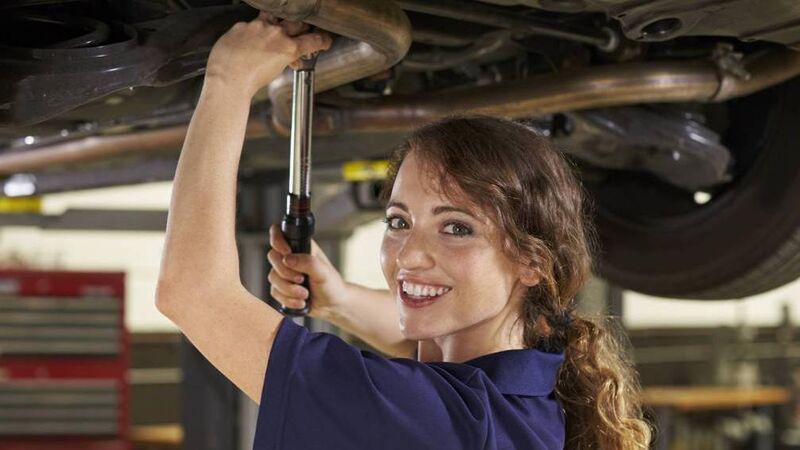Cork Views: A viable alternative to university, the rise of the apprenticeship

There are a wide range of apprenticeship options today, including ‘craft’ and ‘non-craft’ courses
There is a quiet revolution happening in the last few years in the provision of career-focused education and training for young people, and indeed the whole working population.
This summer, any student not getting the required CAO points for their chosen university course will not be left rudderless or in career limbo.
This is because there are now more than 80 apprenticeship programmes, and a whole range of ‘tertiary’ degree programmes, which do not go through the CAO points system, and open up a whole new world of choice for learners, focusing on good career prospects.
Most parents have traditionally encouraged their children to do a good Leaving Certificate, get as many points as possible, and do a degree. The numbers doing apprenticeships used to be a tiny proportion of those completing the Leaving Cert.
This resulted in Ireland over-reaching on the number of students completing degree programmes. And so, the CSO reported 62% of 25-34-year olds in 2022 possessed a third-level qualification compared with an EU27 average of 42%. Yet skills shortages still existed, and were particularly acute in almost all trades areas, and other manual occupations.
This indicated that the spectacular success in producing university graduates was still accompanied by skills-to-jobs mismatch. In the last five years, particularly since the publication of Future FET (2020) by Solas, this has started to be seriously addressed.
A new landscape of education and training has developed. There are now over 80 apprenticeship programmes. We tend to think of these as being the trades (crafts): masons, plumbers, carpenters, mechanics, fitters, plasterers, etc. Yes, that is correct. But now, there are over 70 more, which are ‘non-craft’, which didn’t exist up to a few years ago.
There is a staggering array of courses across the full array of occupations: professional, craft trades, technical, agriculture, biopharma, construction, electrical, engineering, insurance, paramedics, architecture, lab sciences, manufacturing engineering, financial services specialists, software architecture, computer networking; cybersecurity practitioners, and others.
In 2024, there were 29,772 registered apprentices in Ireland. Within these, the trades (crafts) are the largest proportion and are still predominantly run by the Education & Training Board and Solas.
By contrast, the non-craft apprenticeships are run by consortia, normally involving a further education college within an ETB, a university in many cases, and mostly by an industry body representative partner, such as the Irish Medical Devices Association, Construction Industry Federation etc., and/or a stand-alone industry partner. Non-craft apprenticeships are a growing percentage of overall apprenticeship numbers.
To become an apprentice involves initially finding an employer who will offer to pay you during the duration. This is done via checking vacancies between Generation Apprenticeship online and the local ETB. Awards are made at levels 6-9 (non-craft) which include degrees and higher degrees.
The other part of the new landscape are Tertiary programmes. These differ in that, not being an apprentice, you do not receive a contract from an employer of paid employment, which is a key defining feature of apprenticeships. There are 40 of these spanning a wide range of occupations.
Tertiary programmes offer a guaranteed progression, from a Further Education programme at QQI level 4/5 to degrees to higher degrees at QQI levels 6-9, where one or two years are spent studying in further education colleges and then on to university. These are strongly socially inclusive. In addition, no fees are paid for the early years in a further education college, before moving to a university.
Returning to apprenticeships, the number of new registrations in 2024 was 9,352, with the total being 29,772. In 2020, the last year for which data is available, 90% of this total were in the craft areas, whose average earnings two years after qualification was about €950 per week. Of the non-craft apprentices, average earnings were €750 per week. In the same year, the average starting salary for university graduates was €711.
Nonetheless, craft apprentices still receive a lower level qualification than university graduates. One might suggest an anomaly here: craft apprentices (such as carpenters and mechanics) with the highest average earnings, exceeding the newly qualified graduate average, are still awarded their qualifications at level 6, sub-degree, compared to lower earning degree graduates at levels 7 and 8 .
But the overall picture is very significant progress nonetheless. Most apprenticeship programmes now on offer in a rapidly changing global economy are non-craft apprenticeship courses, which can be awarded at levels 6-9, and where most are run in partnership with universities.
These benefit from the combined consortia of education and industry, as above. The model combines theory and practice, while apprentices remain in paid employment for the whole period, typically 3-5 years.
In 2024, there were 265,905 enrolled students in higher university education in Ireland, and 9,352 new apprenticeship registrations, almost trebling from 3,700 in 2016.
Families and students seem to be catching on to the benefits of apprenticeship programmes, where fees are set at about 50% of university programmes, with paid employment throughout, continuous work practice, and which deliver awards at levels 6 to 9 for real jobs in the economy.
Newly-qualified craft apprentices on average receive higher starting salaries than newly-qualified graduates. All apprenticeship courses, craft and non-craft, are based on real skills demands and emerging skills areas. This helps keep the economy lean and insulate it from economic shocks.
Finally, this new education and training landscape offers opportunities not just for school-leavers, but for those who want to change career at any stage in their lives, or who may be starting a career for the first time.
It also enables those with a low stock of skills, who may be in low paid jobs to advance their skills, and receive higher remuneration.
The ‘revolution’ in Irish education and training continues apace.







 App?
App?




